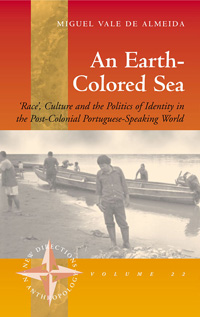‘Longing for Oneself’: Hybridism and Miscegenation in Colonial and Postcolonial PortugalPosted in Africa, Anthropology, Articles, Brazil, Caribbean/Latin America, Europe, History, Media Archive on 2013-10-23 01:10Z by Steven |
‘Longing for Oneself’: Hybridism and Miscegenation in Colonial and Postcolonial Portugal
Etnográfica
Volume VI, Number 1 (2002)
pages 181-200
Miguel Vale de Almeida, Professor of Anthropology
Instituto Superior de Ciências do Trabalho e da Empresa
This essay acknowledges that hybridism, in a troubling reminiscence of the 19th century debate on race and the hybrids is a central issue of debate in the social sciences today. The Portuguese case is one of the most complex and intriguing: if Brazil has been systematically praised as the example of the humanistic and miscegenating characteristic of Portuguese expansion, it has also been used as an argument for the legitimization of later colonialism in Africa, as well as for the construction of a self-representation of Portuguese as non-racists. The Portuguese nation, however, has seldom been described as a miscigenated nation and mestiça itself. Contemporary rhetoric on hybridity – as part of globalization, transnationality, postcolonial diasporas, and multiculturalism – clashes with the reality of the return of ‘race’ within a cultural fundamentalism. This paper focuses on discourses and modes of classification as the starting point for discussing specific practices and processes of Miguel Vale de Almeida identity dispute in the ‘Lusophone’ space.
This is an essay–not a research paper–that acknowledges that, in a troubling reminiscence of the 19th century debate on race and the hybrids, hybridism is a central issue of debate in the social sciences today. The term ‘hybrid’ was applied from botany to anthropology and was associated with both political and scientific speculations on ‘races’ as species or subspecies. The acknowledgment of the common humanity of all ‘races’ strengthened the separation between culture and nature as part and parcel of the project of Modernity (cf. Latour 1994); but it also diverted attention from hybridism to the field of miscegenation and mestiçagem – i.e., ‘racial’ and cultural mixing. Hybridism – and mixing in general – was condemned by some for its impurity and praised by others for its humanism. The result of the century-long debate is, however, much more hybrid itself than a clear opposition. Discourses on miscegenation and mestiçagem tended to be used as ideological masks for relations of power and domination. They were also used as central elements in national, colonial and imperial narratives. The Brazilian case is well known. The Portuguese case is one of the most complex and intriguing: if Brazil has been systematically praised as the example of the humanistic and miscegenating characteristic of Portuguese expansion, it has also been used as an argument for the legitimization of later colonialism in Africa, as well as for the construction of a self-representation of the Portuguese as non-racists. The Portuguese nation, however, has seldom been described as a miscigenated nation and mestiça itself. In the discourses of national identity, emphasis has been placed upon what the Portuguese have given to the others–a gift of ‘blood’ and culture–and not on what they have received from the others. Present rhetoric on hybridity – as part of globalization, transnationality, postcolonial diasporas, and multiculturalism – clashes with the reality of the return of ‘race’ in cultural fundamentalism, policies of nationality and citizenship, and in the politics of representation. This paper will focus on discourses and modes of classification as the starting point for discussing specific practices and processes of identity dispute in the ‘Lusophone’ space. Three periods in the Portuguese production around miscegenation and hybridism will be analysed: a period marked by racist theories; a period marked by luso-tropicalism; and the present period marked by discussions of multiculturalism. Finally, the acknowledgment of creolized social formations as both the outcome of colonialism and the possible examples for thinking of new, less racist societies, closes this exploratory essay…
Read the entire article here.

